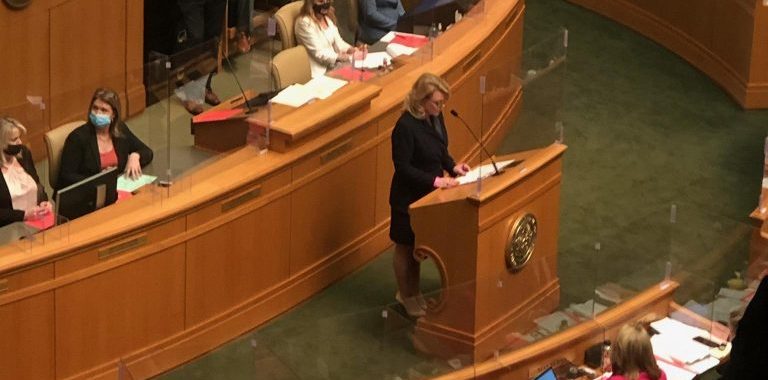Family Council Joins Brief Urging Supreme Court to Address School Gender Transition Case

Last Friday, Family Council joined an amicus brief urging the U.S. Supreme Court to take up Lee v. Poudre School District R-1 — a case challenging a Colorado school’s efforts to socially “gender transition” two middle school girls without their parents’ knowledge or consent. The amicus brief was led by Advancing American Freedom, and 42 pro-family organizations took part in it. This case is one of several that could protect children and parents from dangerous transgender ideologies.
Over the past five years, it has become clear that the “consensus” regarding social and medical gender transitions for children has been largely manufactured by pro-LGBT activists. Fortunately, Arkansas’ legislators have pushed back.
In 2021, lawmakers passed the Save Adolescents from Experimentation (SAFE) Act generally prohibiting doctors from performing sex-change procedures on children or giving them puberty blockers and cross-sex hormones. That law was recently upheld in federal court.
In 2023, Arkansas passed Act 542 protecting teachers or faculty members who decline to use someone’s preferred pronouns at school.
That same year, legislators passed Act 317 to protect privacy in public school locker rooms, showers, restrooms, changing areas, and similar facilities by requiring public schools to designate these facilities for “male” or “female” use.
The Arkansas Legislature also passed the LEARNS Act overhauling public education in Arkansas, prohibiting critical race theory in public schools, and protecting young elementary school children from inappropriate pro-LGBT material in the classroom.
Taken together, these good laws — and others like them — protect children from social and physical gender transition.
Public school students should not be taught to question their sexual-orientation or their gender, and schools should not lie to parents about what their children are learning at school.
Family Council is pleased to stand up for parents and children. We hope the U.S. Supreme Court will take up this case.
Articles appearing on this website are written with the aid of Family Council’s researchers and writers.



